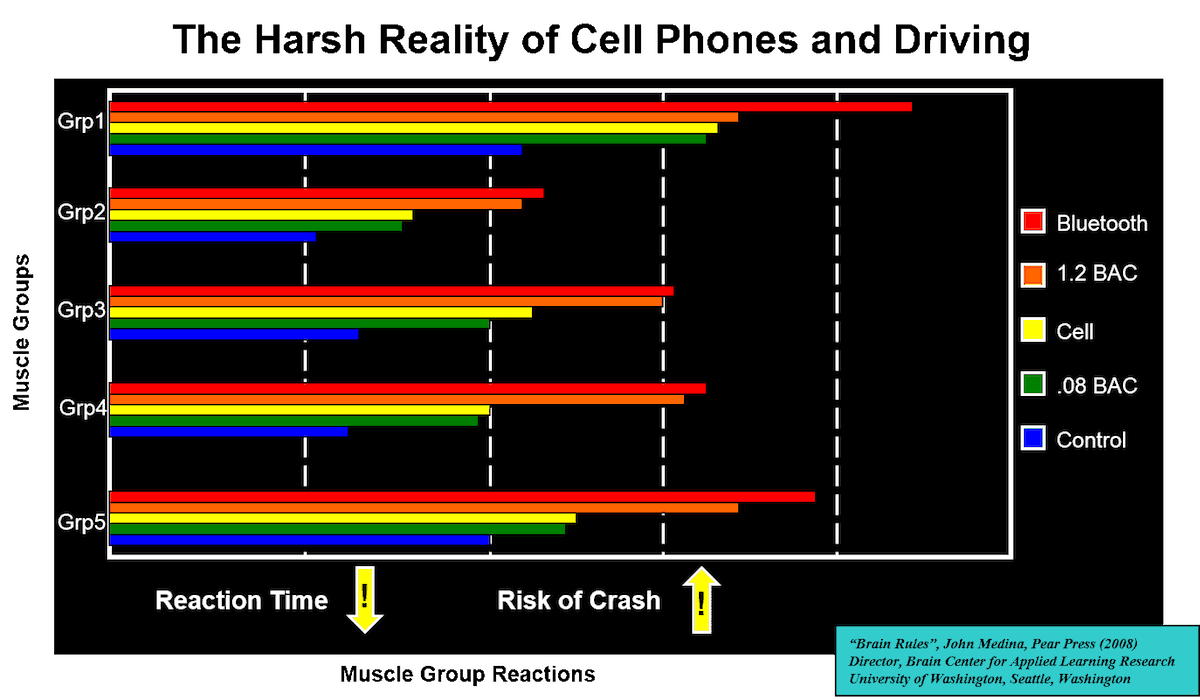By Catherine Rocky
The Organized Mind – Thinking Straight in the Age of Information Overload
Many articles talk about the hazards and very often relay the tragic results of distracted driving, essentially driving while not paying attention. The book The Organized Mind by Daniel Levitin explains how we are confronted with an unprecedented amount of information, and how that can relate to failure of attention.

Our brains process information, but the effort of separating the trivial from the important burns lots of calories and makes us tired. Our processing capacity (bandwidth) is limited to 120 bits per second, barely understanding two people at one time.
Attention is the most essential mental resource, and we have attentional restrictions. Millions of neurons in our brains, called the “attentional filter” constantly monitor the environment to select the most important things for us to focus on.
That’s why you can drive for several hours and don’t remember much. This system “protects” you from registering what isn’t deemed important. The brain’s “change” detector pushes new information up to your consciousness so you can focus and take appropriate action, like an urgent lane change. The “importance” of the information determines if it gets through to you, like a billboard or some words you hear that capture your attention.
Attention is a limited-capacity resource, a lack of which we experience when doing too many things. Keeping track of them all is more than your attentional system can handle. When we pay attention to one thing, we are necessarily taking attention away from something else.
Doing several things at once, or multitasking, is actually switching from one task to another very rapidly, and our brains are not wired to do this very well. This results in increased stress hormones and adrenaline, resulting in over-stimulating your brain into a mental fog or scrambled thinking. The part of our brains we need for staying on task is easily distracted, and your attention is easily hijacked by something new. Staying on task uses less energy, and allows us to make better (and safer) decisions.
Author
-
![The Organized Mind and Distracted Driving [] SWE Blog](https://alltogether.swe.org/wp-content/uploads/2021/10/swe-favicon.png)
SWE Blog provides up-to-date information and news about the Society and how our members are making a difference every day. You’ll find stories about SWE members, engineering, technology, and other STEM-related topics.






